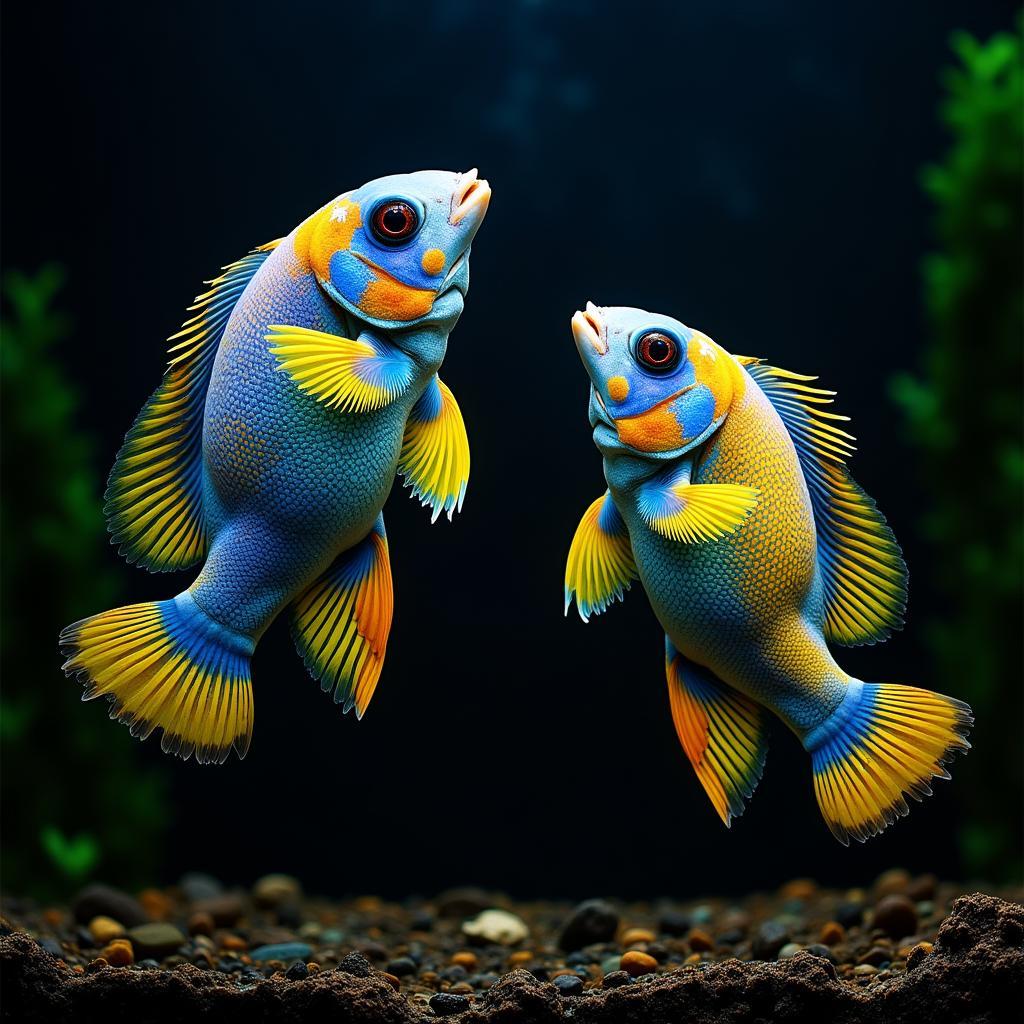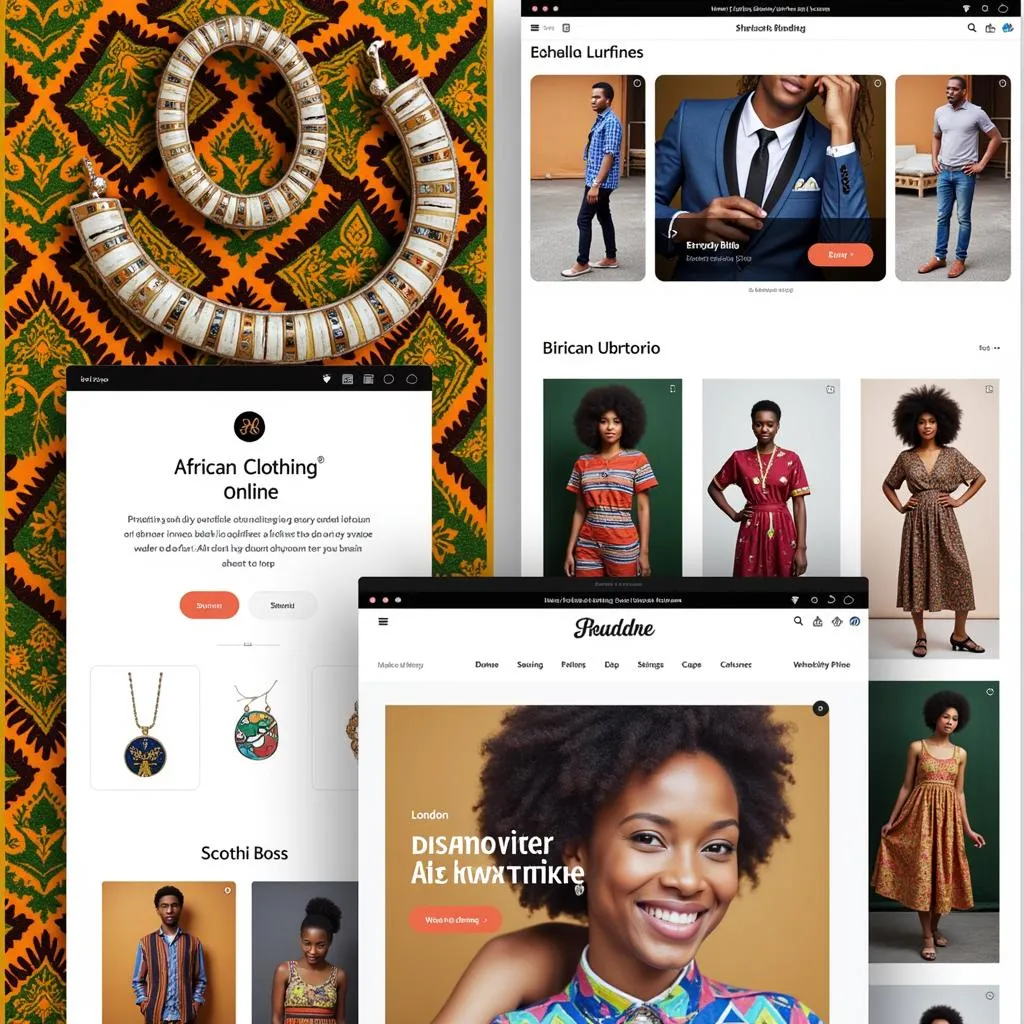African Cichlids: When Do They Give Birth?
African cichlids, known for their vibrant colors and fascinating behavior, are a popular choice among aquarium enthusiasts. One of the most frequently asked questions about these intriguing fish is, “African Cichlids Which Time It Gives Birth?” This article will delve into the reproductive cycle of African cichlids, exploring the various factors influencing their breeding habits and providing a detailed understanding of when they give birth.
Understanding African Cichlid Reproduction
African cichlids exhibit a unique breeding strategy known as mouthbrooding. Unlike many other fish species that lay eggs, female cichlids hold fertilized eggs and, later, free-swimming fry in their mouths for an extended period. This behavior provides protection from predators and ensures a higher survival rate for their offspring.
Mouthbrooding: A Protective Strategy
The mouthbrooding period, often referred to as the incubation period, typically lasts between two and four weeks, depending on the species and water conditions. During this time, the female cichlid does not eat, relying on stored energy reserves. The dedication of these mothers is truly remarkable.
Factors Influencing Breeding Time
While there’s no set “time” when all African cichlids give birth, several factors influence their breeding cycles:
- Water Temperature: Warmer water temperatures can trigger breeding behavior in many cichlid species.
- Water Chemistry: Specific water parameters, such as pH and hardness, can also play a role in stimulating reproduction.
- Food Availability: Abundant food sources often lead to increased breeding activity.
- Social Dynamics: The presence of a suitable mate and the establishment of a territory can initiate the breeding process.
Recognizing Breeding Behavior
Identifying when your cichlids are ready to breed can be an exciting experience. Look out for these signs:
- Intensified Colors: Males often display brighter, more vibrant colors during courtship.
- Courtship Displays: Males may perform elaborate dances and fin displays to attract females.
- Digging or Cleaning: Cichlids may prepare a nesting site by digging pits or cleaning rocks.
- Lip Locking: This aggressive behavior, though seemingly hostile, is often a part of the courtship ritual.
 African Cichlid Courtship Ritual
African Cichlid Courtship Ritual
From Eggs to Fry: The Timeline
Once the female has laid her eggs and the male has fertilized them, she collects them in her mouth. The eggs hatch within a few days, but the fry remain in the mother’s mouth until they are large enough to survive on their own. This process can take several weeks.
The Release of the Fry
When the fry are ready, the female releases them into the tank. She may continue to protect them for a short period, taking them back into her mouth if danger threatens. Witnessing this maternal care is a highlight for any cichlid keeper.
“Observing the release of the fry is a truly magical moment,” says Dr. Amani Kijazi, a renowned ichthyologist specializing in African cichlids. “The dedication of the mother cichlid is a testament to the power of nature’s protective instincts.”
Conclusion
Understanding the breeding cycle of African cichlids, specifically their mouthbrooding behavior, provides valuable insights into their fascinating lives. While there’s no specific time when all African cichlids give birth, paying attention to environmental factors and behavioral cues can help you anticipate this remarkable event. By creating the right conditions and recognizing the signs, you can enjoy the rewarding experience of witnessing the birth and development of these captivating fish. Remember, “african cichlids which time it gives birth” depends on a complex interplay of factors, making each breeding cycle a unique and fascinating journey.
FAQ
- How long do African cichlids carry their eggs? (Typically 2-4 weeks)
- What are signs that my cichlids are breeding? (Intensified colors, courtship displays, digging, lip locking)
- Do all African cichlids mouthbrood? (Yes, all African cichlids are mouthbrooders.)
- What should I do when my cichlids are breeding? (Ensure a suitable environment and avoid disturbing them.)
- How often do African cichlids breed? (This varies depending on species and conditions, but it can be several times a year.)
- What do baby cichlids eat? (Newly released fry can be fed crushed flake food or specialized fry food.)
- How can I tell if my cichlid is male or female? (Males are often larger and more brightly colored.)
For further assistance with your African cichlids, please contact us: Phone: +255768904061, Email: kaka.mag@gmail.com, or visit us in Mbarali DC Mawindi, Kangaga, Tanzania. We have a 24/7 customer support team.


